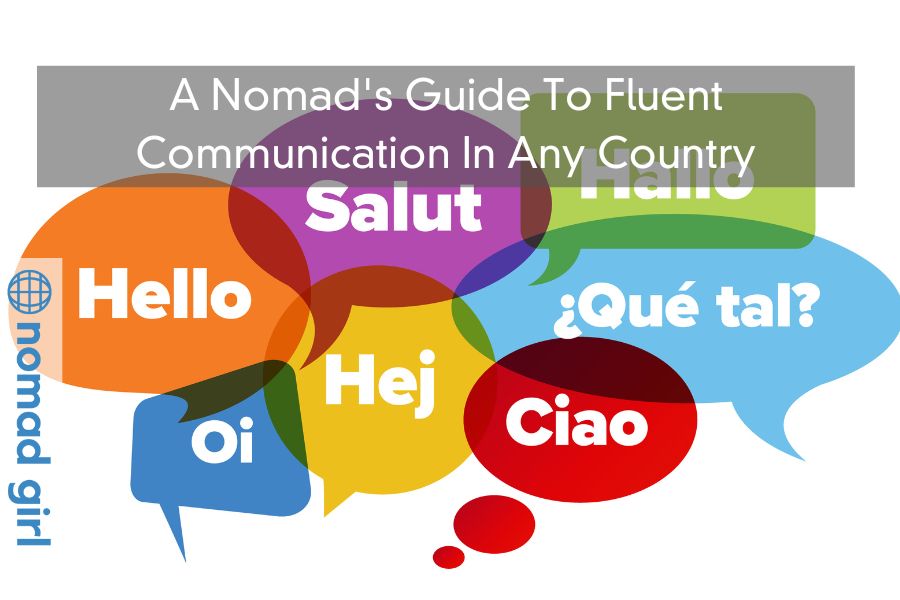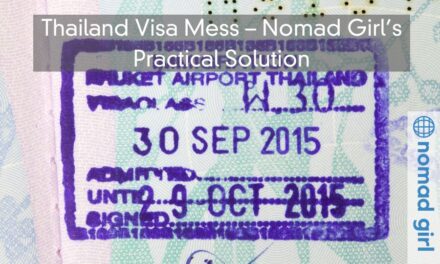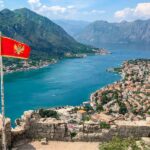Imagine arriving in a new country, rich with unfamiliar sights and sounds. While the landscape intrigues you, effective communication remains a challenge. This article aims to guide you through mastering the art of fluent conversation, no matter where you find yourself. We’ll delve into strategies like preparatory language learning, in-country immersion, and the use of technology aids.
Fluent communication can enhance your nomadic lifestyle. It allows for easier navigation, richer cultural experiences, and the opportunity to build lasting relationships. In a life constantly on the move, effective communication becomes more than a skill; it’s a necessity.
Why Communication Matters
In the life of a nomad, adaptability is key. Among the various skills one must possess, effective communication stands out as a critical element.
When you can understand and make yourself understood, asking for directions becomes straightforward. It helps you avoid dangerous situations, such as unknowingly entering restricted areas. Simply put, fluent communication minimizes risks and maximizes your control over unfamiliar settings.
2. Richer Cultural Experiences
Engaging in meaningful interactions with locals elevates your travel experience. When you can speak the language, or at least understand its basics, you can immerse yourself more deeply. You’ll grasp the nuances of traditions, participate in local customs, and perhaps even make friendships that last a lifetime.
3. Building Relationships On The Go
The capability to communicate opens up avenues for socialization, both for personal and professional gains. Whether it’s forming friendships at a local cafe or networking at a co-working space, effective communication is the cornerstone. These relationships can offer emotional support, insights into local culture, and may even provide opportunities for collaborative projects.
Proficient communication does much more than make life easier—it amplifies the quality of your experiences and creates fertile ground for lasting connections.

Preparing Before You Leave
While spontaneity has its own charm, preparation is the cornerstone of effective communication in a foreign setting. Planning in advance not only gives you a head start but also eases your transition into new environments.
1. Research Common Phrases
Before landing in a new country, it’s advisable to familiarize yourself with common phrases and greetings. Let’s say you’re heading to Vietnam; the ability to say even simple phrases like ‘hello’ or ‘thank you’ in Vietnamese can set a positive tone for interactions. Resources are abundant for those who want to learn to speak Vietnamese fast, from pocket phrasebooks to online video tutorials.
2. Use Language Learning Apps
In the digital age, mobile applications have made language learning incredibly accessible. Mobile apps offer structured courses that help you build vocabulary and understand syntax. These platforms allow for flexible learning, enabling you to pick up essential terms and expressions at your own pace.
3. Importance Of Cultural Norms And Gestures
Language is more than just words; it’s a complex tapestry of cultural norms and gestures. Before leaving, invest time to understand the etiquette and non-verbal cues common in your destination.
For instance, in some Asian countries, a bow might be a standard form of greeting. By incorporating these elements, you enhance the quality of your communication and show respect for the culture you’re entering.
Meticulous preparation in language and cultural norms significantly enriches your ability to communicate. This preparation is not just an optional pre-travel task but an essential element of a fulfilling nomadic lifestyle.
In-Country Language Tips
Once you’ve arrived at your destination, the real work—and excitement—begins. While prior preparation sets the foundation, the techniques you employ in-country will accelerate your progress.
1. Local Immersion Techniques
Immersing yourself in the local environment is the fastest way to adapt. This could mean spending time at local markets, attending community events, or even joining a hobby group. The objective is to surround yourself with the native language in real-world settings. The more you practice, the quicker you’ll become proficient.
2. Use Of Flashcards For Quick Learning
Flashcards are a timeless and effective tool for language acquisition. You can jot down new words, common phrases, or tricky pronunciations on these cards. Review them during idle moments—like waiting for a bus or sitting at a cafe. This habit not only enhances vocabulary but also aids in quicker recall during conversations.
3. Importance Of Active Listening
Active listening is a critical aspect of fluent communication. Pay close attention to how locals speak, from their tone to their choice of words. Note the colloquialisms and nuances in their speech patterns. The art of active listening turns passive vocabulary into functional language skills.
These proactive approaches enrich your travel experience and ensure that language barriers become a thing of the past.
Beyond Verbal Communication
While spoken language is the most obvious form of communication, it’s not the sole method by which we express or interpret meaning. A comprehensive approach to fluent communication entails understanding the unspoken as well.
1. Reading Body Language
Body language is a universal form of communication that can convey emotions, intentions, and reactions. A firm handshake may express confidence in some cultures, while a respectful bow indicates the same in others. By reading body language effectively, you can glean additional context, even when the spoken words are unfamiliar.
2. Understanding Local Customs
Local customs often incorporate a set of unspoken rules that guide social interactions. For instance, in some Middle Eastern cultures, showing the sole of your foot is considered disrespectful. Understanding these cultural norms enables smoother communication, allowing you to interact without unintentionally causing offense.
Non-verbal cues like facial expressions, eye contact, and gestures often carry substantial weight. In some cultures, avoiding eye contact is a sign of respect, while in others, it’s considered evasive. Grasping these cues can help you navigate social nuances, providing a richer, more connected experience.
By paying attention to body language, adapting to local customs, and interpreting non-verbal cues, you create a multi-dimensional approach to communication.
Technology Aids
In an increasingly interconnected world, technology often serves as our ally in breaking down language barriers.
Translation apps are virtually indispensable for the modern nomad. With a swipe and a tap, complex phrases can be translated in real-time. Not only do these apps help with common phrases, but some even provide the option to translate menus, street signs, or documents through image recognition. In this way, language gaps can be bridged almost instantly.
However, technology is not without its drawbacks. Overreliance on translation apps may discourage you from learning the local language. Also, while these tools are remarkably accurate, they’re not foolproof. Subtle nuances and idiomatic expressions often get lost in translation. Therefore, use them as a supplementary tool, not a replacement for genuine language learning.
Conclusion
Throughout this guide, we’ve navigated the multifaceted world of fluent communication for the nomadic lifestyle. From the importance of preparatory learning to the nuances of non-verbal cues, effective communication proves itself as a cornerstone for safer, richer, and more meaningful travel experiences.
So, why is communication such a vital skill to invest in? Because it’s not just a tool for travel—it’s a lifelong skill. Fluent communication opens up worlds, connects cultures, and enriches the soul. In a life where home is everywhere yet nowhere, your ability to communicate becomes your anchor. Wherever your journey takes you next, go equipped with the power of fluent communication. It’s an investment you’ll never regret.


















